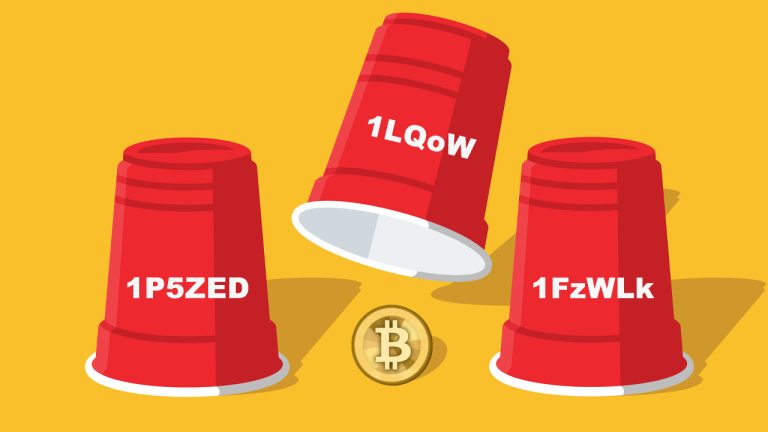 Amid the market chaos within the crypto economy and following the climactic FTX collapse, the crypto asset solana has been one of the hardest hit during the last 30 days. Since FTX’s fallout, the digital currency lost 8.5% over the last month against the U.S. dollar and to date, it’s down 94.9% since the all-time […]
Amid the market chaos within the crypto economy and following the climactic FTX collapse, the crypto asset solana has been one of the hardest hit during the last 30 days. Since FTX’s fallout, the digital currency lost 8.5% over the last month against the U.S. dollar and to date, it’s down 94.9% since the all-time […]
Users’ emails, account numbers and partial phone numbers were allegedly leaked.
Cryptocurrency exchange Gemini appears to have suffered a data breach on or before Dec. 13. According to documents obtained by Cointelegraph, hackers gained access to 5,701,649 lines of information pertaining to customers’ account numbers, email addresses and partial phone numbers. In the case of the latter, hackers apparently did not gain access to the full phone numbers, as certain numeric digits were obfuscated.
The leaked database did not include sensitive personal information such as names, addresses and other Know Your Customer information. In addition, some emails were repeated in the document; thus, the number of customers affected is likely lower than the total rows of information. Gemini currently has 13 million active users.
Security breaches in the Web3 industry, even if mild in nature, can have serious consequences. One such incident took place in April this year and involved cryptocurrency hardware wallet manufacturer Trezor. Hackers gained access to Trezor users’ email addresses by breaching a third-party newsletter provider and then utilized the information to target users in a phishing scam, leading to losses.
Cointelegraph has reached out to Gemini for comments but has not received a response by press time. This is a developing story and will be updated accordingly.

A new study by Uswitch revealed which countries are ready to embrace the metaverse by more technical standards, such as fixed broadband speeds and prices.
The metaverse and digital reality experiences are barreling toward consumers, whether they are ready or not. However, there are certain places in the world that are more ready to embrace a digital future from a technological standpoint.
A new study by Uswitch, an internet and telephone service researcher, looked at a combination of fixed broadband speeds, broadband package prices, the number of blockchain financial start-ups and the price of high technology exports to determine which countries have the capacity to embrace the metaverse.
At the top of the list is the Netherlands, with the most hospitable conditions to cater to such technology. According to the study, the Netherlands has one of the highest average fixed broadband speeds of 106.51Mbps. The country also produced roughly $6,000 of high-technology exports per capita last year.
The Netherlands also ranked number one in metaverse interest from a consumer standpoint, according to a different survey.
Following the Netherlands are Switzerland, Lithuania, Malta and France. All countries in the top five spaces are known for showing interest in the emerging Web3 space. Malta has been particularly a longtime crypto and blockchain hub.
The United Kingdom and the United States, two major players in the metaverse development space came in 7th and 12th respectively.
Related: The state of crypto in Northern Europe: Hostile Scandinavia and vibrant Baltics
Despite recent turbulence in the Web3 space, development surrounding the metaverse continues to push forward.
Recently, Animoca Brands announced that it is taking a majority stake in a new music metaverse gaming platform. This came shortly after the company announced its plans for a billion-dollar metaverse development fund.
Meta, the Facebook parent company, is also back in the metaverse spotlight after co-founder and CEO Mark Zuckerberg said he’s not letting criticism and significant monetary losses stop plans for building a metaverse platform.
 Fees tied to the Ethereum network have been under the $5 region per transaction during the last 175 days, according to statistics. Metrics show that on Dec. 10, 2022, the average ethereum transfer is around 0.0023 ether or $2.87 while the median-sized gas fee is around 0.00097 ether or $1.23 per transfer. Ethereum gas metrics […]
Fees tied to the Ethereum network have been under the $5 region per transaction during the last 175 days, according to statistics. Metrics show that on Dec. 10, 2022, the average ethereum transfer is around 0.0023 ether or $2.87 while the median-sized gas fee is around 0.00097 ether or $1.23 per transfer. Ethereum gas metrics […]
The Bahamian attorneys filed an emergency motion with a Delaware bankruptcy judge requesting access to FTX’s customer database to aid their ongoing investigations.
Authorities across the globe are fighting against time to bring justice to the millions of people impacted by the financial frauds committed by FTX CEO Sam Bankman-Fried. As part of the ongoing investigations, attorneys representing the Securities Commission of the Bahamas seek access to FTX’s database with international customer information.
The Bahamian attorneys filed an emergency motion with a Delaware bankruptcy judge requesting access to FTX’s customer database to aid their ongoing investigations. The motion highlighted previous failed attempts to access the defunct crypto exchange’s database. As a result, the lawyers claimed that FTX employees and counsel prevented authorities from getting critical financial information.
The database in question is reportedly stored on Amazon Web Services (AWS) and Google Cloud Portal databases, which include personal information such as wallet addresses, customer balances, deposit and withdrawal records, trades and accounting data. According to the lawyers, the U.S. bankruptcy proceedings will "suffer no harm or hardship if this relief is granted."
While AWS was used to store customer information, FTX used Google services as an analytics platform for data of users residing outside of the United States. According to the filing sourced by CNBC:
“While the Joint Provisional Liquidators are happy to engage in dialogue with the U.S. Debtors, their refusal to promptly restore access has frustrated the ability of the Joint Provisional Liquidators to carry out their duties under Bahamian law and placed FTX Digital’s assets at risk of dissipation.”
The latest domino effect of FTX fraud was felt by media outlet The Block, which had failed to disclose funding from Alameda Research. The Block CEO Mike McCaffrey stepped down from his position after failing to disclose $27 million loans from FTX's sister firm Alameda Research.
Related: CZ and SBF duke it out on Twitter over failed FTX/Binance deal
On Dec. 7, the new management team of FTX reportedly hired a team of financial forensic investigators to track down the missing customer funds exceeding $450 million in cryptocurrencies.
As previously reported by Cointelegraph, the forensics firm is tasked with conducting “asset-tracing” to identify and recover the missing digital assets and will complement the restructuring work being undertaken by FTX.

A new study reveals Turkey in second place for crypto-related searches worldwide and first place for Dogecoin-related searches.
The crypto market slump doesn’t mean interest in crypto is also down. A new study from the cryptocurrency education platform CryptoManiaks revealed that many countries are still scouring the internet, hungry for crypto-related information.
According to the study, the Netherlands and Turkey take the top two spots, with 8.2% and 5.5% of the population, respectively, searching for crypto-related terms. Turkey particularly accounted for 4.7 million searches, leading the searches with sheer numbers.
The study analyzed the combined number of searches for a select set of popular cryptocurrencies into a percentage of the population for each country in order to calculate the percentage of locals searching each month.
While it was in second for overall searches, Turkey came in first place for searches related to the memecoin Dogecoin (DOGE), with 812,000 monthly searches. This is nearly double that of Ethereum (ETH), the country’s third most searched crypto.
A spokesperson from CryptoManiaks commented on the DOGE curiosity, particularly over the last 12 month:
“Dogecoin’s popularity has surpassed that of Ethereum in a significant number of countries, with nearly 2 million more monthly searches worldwide for the coin.”
The cryptocurrency DOGE has remained a popular digital asset and crypto cultural phenomenon after it was adopted as the poster crypto for internet icon Elon Musk.
Some of the cryptocurrencies included in the search terms were Bitcoin (BTC), Solana (SOL), and Binance Coin (BNB), among others.
Following the Netherlands and Turkey in the ranks were Germany, Canda and the Czech Republic.
Related: DeFi sparks new investments despite turbulent market: Finance Redefined
While the United States and the United Kingdom are major players in the global cryptocurrency industry, neither ranked in the top spots due to the number of searches equivalent to their population sizes. The U.S. ranked 15th with 1.9% of the population searching for these terms, while the U.K. takes the 12th spot with 2.6%.
Recent research from Cointelegraph also revealed that despite market conditions, major institutions still remain interested in the industry and continue to pour millions into crypto-related projects.

The volatility of the crypto market hasn’t stopped the metaverse from gaining potential as a utility for businesses and consumers alike.
Despite turbulent market conditions over the last year, the metaverse and its potential utility remain steady in the minds of consumers.
According to data from a new survey by Capgemini, a business and technology strategy advisor, over three-quarters of consumers expect their interactions with brands and individuals to be impacted by the metaverse.
This also goes for organizations, as 7 out of 10 believe that the metaverse and immersive experiences will be a market differentiator in terms of customer experience.
The report surveyed 8,000 consumers, along with 1,000 organizations in 12 countries across different sectors to understand metaverse competency, interest and impact.
Included in the mix was a group of 380 consumers who self-identified as “metaverse-experienced,” of which three-quarters said they actively participate in the metaverse.
Data revealed that 93% of surveyed consumers said they are curious about the metaverse. Of that number, 51% said they would use the metaverse as it becomes more accessible to them.
Charlton Monsanto, the global immersive experiences offer leader at Capgemini, said the “consumer-facing metaverse” needs to address the challenges of accessibility and privacy among other things in order to move forward.
“The potential of the metaverse is transformative and consumer curiosity remains high."
Education and accessibility go hand in hand for emerging technologies and remain the biggest challenges for tech-savvy brands to communicate with consumers.
Related: DeFi sparks new investments despite turbulent market: Finance Redefined
The survey also touched on the type of metaverse interactions consumers look for, to which 43% of respondents said they would like to interact with friends and family. This was followed by interactions with colleagues (39%), gaming-related experiences (33%), and commercial activity (28%).
With such an emphasis on connectivity, development in the metaverse has seen a rise in events which allow people to connect with one another, such as festivals and concerts.
Entire nations have even begun using the metaverse to preserve their heritage for future communities to interact with.
Recently, the metaverse developer Animoca Brands announced they will open up a billion-dollar metaverse development fund for startups in the space.
 The Lazarus group, a North Korean hacking organization previously linked to criminal activity, has been connected to a new attack scheme to breach systems and steal cryptocurrency from third parties. The campaign, which uses a modified version of an already existing malware product called Applejeus, uses a crypto site and even documents to gain access […]
The Lazarus group, a North Korean hacking organization previously linked to criminal activity, has been connected to a new attack scheme to breach systems and steal cryptocurrency from third parties. The campaign, which uses a modified version of an already existing malware product called Applejeus, uses a crypto site and even documents to gain access […] Last year and during the first half of 2022, speculators assumed the third-largest bitcoin address was a ‘mysterious whale,’ even though the wallet had shown strong characteristics of being a cryptocurrency exchange. The address known as “1P5ZED” has since been replaced by another address, after the wallet started to transfer its entire bitcoin balance in […]
Last year and during the first half of 2022, speculators assumed the third-largest bitcoin address was a ‘mysterious whale,’ even though the wallet had shown strong characteristics of being a cryptocurrency exchange. The address known as “1P5ZED” has since been replaced by another address, after the wallet started to transfer its entire bitcoin balance in […]
From insurance to telehealth, smart contracts are finding use cases across the healthcare industry.
Smart contracts are self-executing lines of code that run atop blockchains and are triggered once a set of predetermined conditions are met. They are used to automate the execution of online agreements without the involvement of third parties. Today, they are used across many industries, including the healthcare industry.
The healthcare sector stands to benefit a lot from the widespread implementation of these self-executing programs, especially when it comes to streamlining arduous manual processes, automating bureaucratic procedures and alleviating issues caused by human error.
Today, many healthcare institutions rely on highly centralized conventional management systems to handle sensitive tasks such as record keeping, transactions and correspondences. While some traditional systems can undertake some of the tasks exceptionally well, many of them are prone to failure due to limited interoperability, susceptibility to data corruption and lack of transparency.
The good news is that smart contracts can solve many of these problems.
Smart contracts can be programmed to perform a wide range of tasks. They can, for example, be programmed to record payment information on the blockchain once a transaction is made while ensuring that only entities with permissioned access can view the details.
In the healthcare industry, companies can use smart contracts to send out staff salaries, record patient information and notify insurance companies about pending medical bills.
Smart contract programs are usually deployed in compatible runtime environments. On the Ethereum blockchain, for example, smart contract codes are executed via the Ethereum Virtual Machine, which supports the installation of decentralized applications, including smart contracts.
Medical records are an essential part of patient management. Smart contracts can be used to create patient profiles on the blockchain while allowing doctors and relevant medical practitioners to view past medical records. This would allow them to come up with better treatment procedures based on a patient’s past treatment history and subsequent outcomes.
Such a setup would save lives and help doctors avoid issues related to medical negligence. Health centers can also configure smart contracts to track health complications arising from treatment side effects and encode them to share the information with partner drug manufacturing companies and medical associations that have yet to uncover the full side effects of new drugs.
It is additionally possible to have smart contracts that send patient information to insurance companies for the purposes of patient compensation claims to smooth out such processes.
The lack of effective healthcare billing systems can present many challenges to healthcare institutions, especially when it comes to revenue cycle management. Errors related to billing and collections can hinder optimal service in the event that they cause major interruptions.
Trustless blockchain networks incorporating smart contracts can mitigate many of these challenges by ensuring elaborate checklists are implemented to avoid common errors.
Recent: Festivals in the metaverse: How Web3 projects are taking culture virtual
Such systems would be beneficial in situations where there are preexisting transparency issues. The use of multisignature smart contract fail-safes would ensure consensus within management to avoid related problems.
Additionally, the storage of billing information on the blockchain would help to prevent problems related to data loss due to the immutable nature of decentralized ledger networks.
Delayed medical information transfers sometimes lead to poor service. Smart contracts have the ability to change this by disseminating patient information across relevant departments in healthcare institutions. Some smart contract systems are able to generate unique anonymized identifiers that can be used to identify each patient without revealing their identity in order to safeguard their privacy.
Moreover, they can be set up to block unauthorized access and, at the same time, allow the scrutiny of the records by personnel, partners and regulators.
The data can also be used for numerous purposes, including clinical research.
That said, smart contracts that manage confidential patient information sometimes require periodic security audits, which can lead to the exposure of sensitive information.
Hundreds of millions of dollars worth of counterfeit drugs find their way into the healthcare industry every year. The bogus drugs cause pharmacies and hospitals to suffer financial losses and sometimes also lead to the death of victims who take them. The flow of these fake medicines is enabled by dysfunctional supply chain systems that are unable to track the origin of supplied drugs.
Healthcare substitutions can use smart contracts to detect fake drugs by confirming supply chain data provided by manufacturers. The implementation of such systems would allow tracking of the drugs using custody logs as they move through the supply chain.
Because the data is stored on the blockchain, which is transparent, healthcare institutions and their suppliers can easily identify supply chain weaknesses that lead to the entry of fake drugs.
Cointelegraph had the chance to speak with Guy Newing, the founder of Immunify.Life, about this problem. His company specializes in the development of secure, self-sustaining blockchain networks for the healthcare industry. According to the executive, there are many ways of countering the issue, including withholding payments for drugs that are not from legitimate sources.
“For instance, a smart contract can be programmed such that retail drug sellers may need to only pay for items received when certain conditions that would have otherwise been tampered with at any point in the supply chain have not been tampered with. This solidifies the integrity of the drugs and healthcare ecosystem as a whole.”
Alex Pipushev, founder of blockchain services company GTON Capital, said that blockchain supply chain systems were evolving at a fast pace and will most likely cater to a wider range of healthcare services as their utility increases.
“Blockchain is a great tool for verification. The healthcare use case is amazing here because you can technically store stamps for each pill set/box in an encrypted way, and anyone who bought it from a pharmacy can verify if legit or fake medicine was sold,” he said.
Remote monitoring devices have revolutionized some aspects of telehealth. Today, wearable devices are able to measure important physiological elements such as a patient’s heart rate and transmit the data in real time to healthcare professionals.
Smart contracts have the capacity to not only store such data on the blockchain but also keep it confidential through encryption while ensuring that only intended recipients are able to access it.
The benefits of smart contracts are also becoming apparent in health insurance due to their ability to improve customer experiences.
For example, claims payments handled by smart contracts are typically processed at a faster rate compared to manual procedures, which can sometimes drag on for weeks.
However, there are some limitations when it comes to the use of these technologies in the sector due to constantly changing pre-contractual disclosure obligations, which require some level of human interaction.
The insurance sector is also a regulated market, so there will always be concerns, particularly regarding consumer outcomes. These challenges are further compounded by decisions made by regulators and underwriters that are, in some cases, of an extra-contractual nature.
Recent: What is tokenization and how are banks tapping into its design principles?
As such, smart contracts are presently being used in the sector for impermanent processes such as the confirmation of payments.
Smart contracts have a lot of use cases in the healthcare industry. However, the sector has been slow to embrace the new technology, which has the potential to transform how the industry works.
That said, the healthcare smart contracts market is growing. It was valued at approximately $1.6 billion in 2021 and is projected to breach the 1.78 billion mark in 2022.